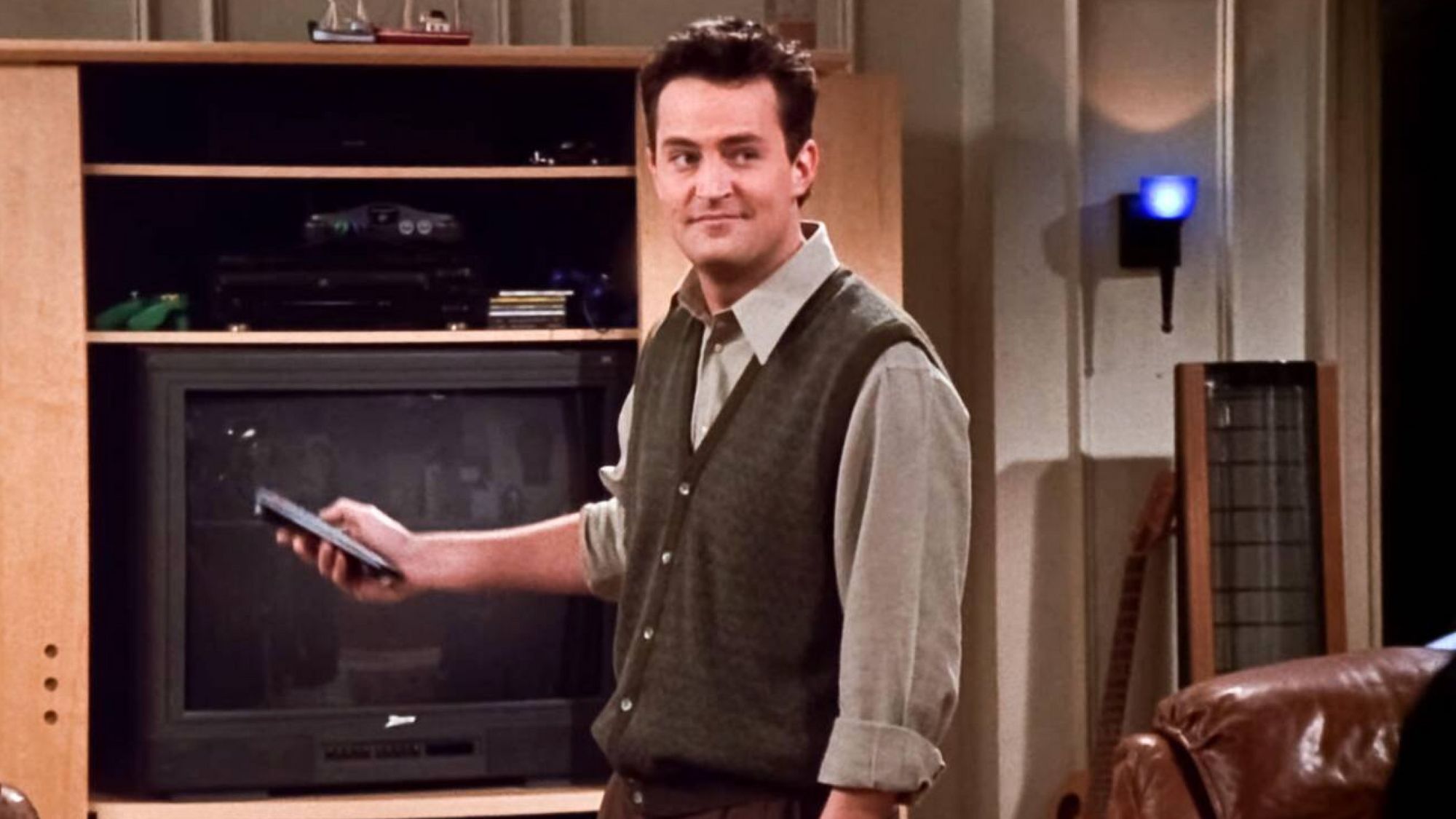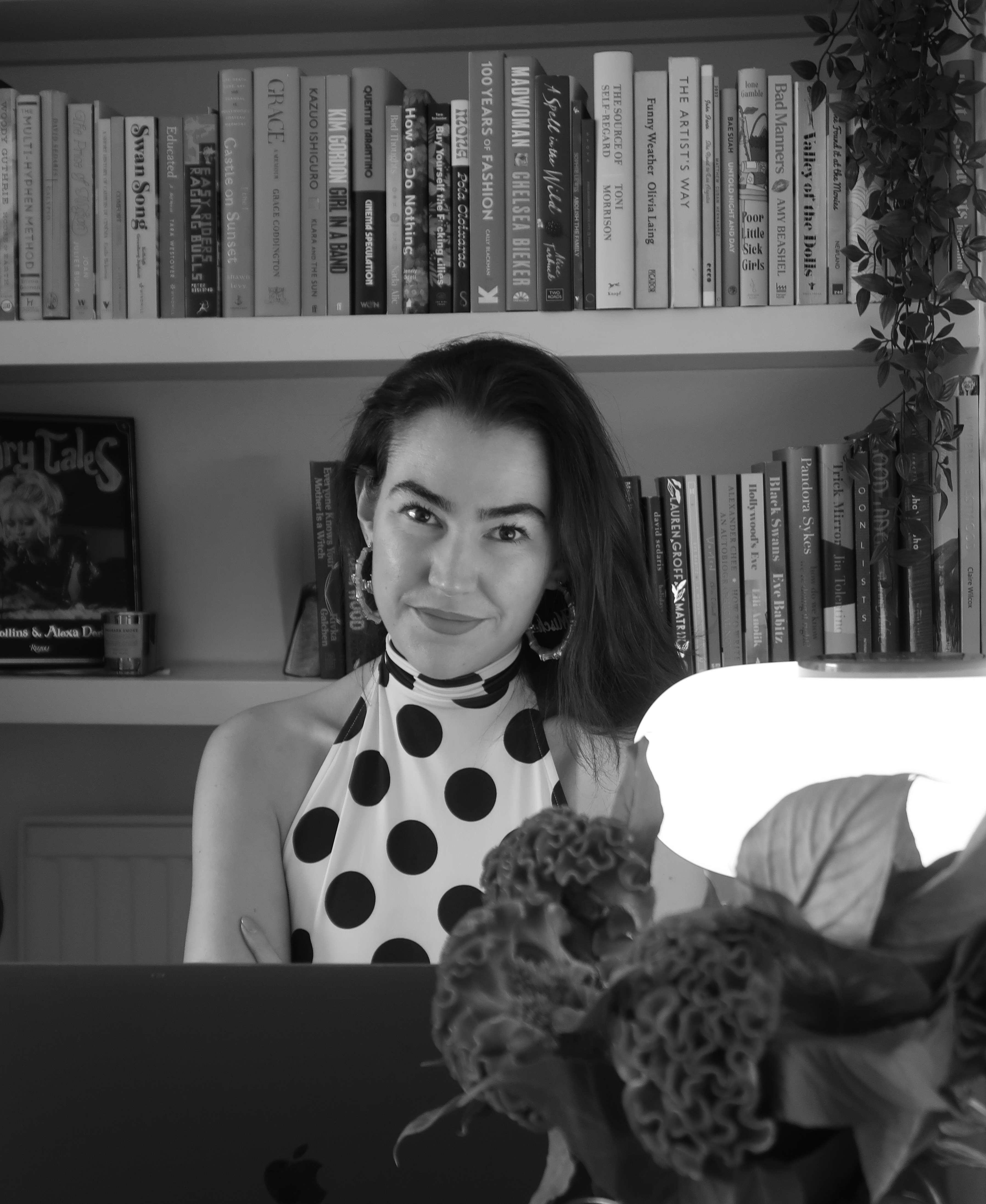Hands up, who here is watching TV with subtitles on?
Reveal yourselves


Celebrity news, beauty, fashion advice, and fascinating features, delivered straight to your inbox!
You are now subscribed
Your newsletter sign-up was successful
It’s recently come to my attention that there are people among us — you might even be sleeping with one of them — who are watching TV with subtitles on.
I’m not talking about foreign language programming or even complex TV shows with twisting plotlines and imperceptible characters; I’m talking about your everyday run-of-the-mill viewing. Your Traitors, for example, or Bridgerton.
A recent, rigorous, and not at all biased survey shows that two in three UK adults watch TV with the subtitles on at all times, not just when they’re blow drying their hair and can’t find headphones, as my canny pal Helen does. The survey I am referring to was, of course, the time-tested office headcount, and while I won’t name names *cough Natalie Hughes, Sunil Makan*, it would seem that there is a divide between those who subtitle and those who don’t.
@ritaora Dam it i looked away for 2 seconds…
♬ original sound - AlenaVas<3
Ever the investigative journalist, I dug deeper and took it to another failsafe barometer of public viewing habits - the group chat. “All the time?!” was the first response when a friend said her flatmates keep the captions on. “I would find that highly distracting”, answered another, inciting a flurry of thumbs up emojis.
The most common reason people use subtitles is to help them concentrate. Other explanations include “heavy accents”, “mumbling actors”, and helping their partner learn English, which was deemed “fair enough” by the group chat, which has now splintered into two rival camps and may never recover. Certainly, cinema trips are off the cards.
Are you what will henceforth be known as a ‘Subtitler’? Is your partner (if so, I need to know the logistics)? What reason can there be for reading and watching simultaneously? I have so many questions.
A post shared by Movies | Entertainment
A photo posted by actionmovies on
I have a friend, a real TV massacrist, who skips the “boring sections” of shows. It’s not just shows she’s seen before either; we’re talking premium content, like Succession, which delivered some of the best-ever dialogue and may be the only programme I’d bend my no-subtitles rule for.
Celebrity news, beauty, fashion advice, and fascinating features, delivered straight to your inbox!
Unsurprisingly, given her viewing habits, she also watches TV with the captions on. “At some point, they got turned on, and now I don’t even realise. I don’t mind when someone turns them off, but they don’t bother me enough to turn them off myself.” This coming from a woman who fast-forwarded through the “ludicrously capacious” bag scene. A gargantuan moment in television history.
Our Fashion Editor Natalie also discovered her preference for subtitles by accident. “My dad has hearing issues, so he always has them on,” she says, reasoning that being a writer helps her concentrate. “I find I am much less likely to lose concentration when I can see the words! It actually puts me off watching something on TV when there are no subtitles available.” While Sunil says — wait for it — that reading the subtitles helps him to “hear better”.
A post shared by No Context Succession
A photo posted by nocontextsuccession on
Therapist Jeanie Y. Chang says that young people are so used to reading captions on social media videos that it’s normalised subtitles on TV and films. “Young folks don’t use the old school ways of communication”, she says, reminding me that whenever my phone rings, my thoughts automatically hurl to “What’s happened?!” As Jeanie explains, communication today is mainly through writing, whether emailing colleagues or WhatsApping friends.
Nicola Holme, an MBACP Registered counsellor, credits the rise in subtitles to an increased awareness of neurodivergent traits like ADHD and ADD. She thinks this has led to more understanding and an interest in coping mechanisms and techniques to aid concentration. You don’t need to spend much time on Instagram or TikTok to know there’s a slew of self-help content catering to the rise in ADHD diagnoses.
By contrast, Jeanie sees keeping subtitles on almost as a form of mindfulness because you have to actually concentrate. “You are enjoying the present moment and absorbed in good storytelling,” she says, though that last bit is questionable if my Netflix suggestions are anything to go by.
I'll have to relent and say that I can see the appeal of subtitles, not least because I've set off a thunderstorm in my group chats, and I'm now subject to a steady flow of justifications. New additions include growing up in a hectic household with constant background noise, living with loud housemates, and stopping the kids from hearing anything they shouldn't, which raises a whole new question - are some of you watching the TV on silent with subtitles on? I'm not sure I'm ready to delve into that one.

Mischa Anouk Smith is the News and Features Editor of Marie Claire UK, commissioning and writing in-depth features on culture, politics, and issues that shape women’s lives. Her work blends sharp cultural insight with rigorous reporting, from pop culture and technology to fertility, work, and relationships. Mischa’s investigations have earned awards and led to appearances on BBC Politics Live and Woman’s Hour. For her investigation into rape culture in primary schools, she was shortlisted for an End Violence Against Women award. She previously wrote for Refinery29, Stylist, Dazed, and Far Out.
